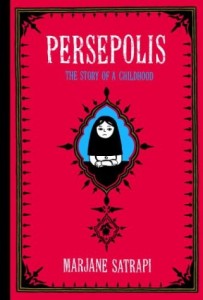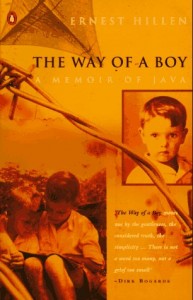Hello fellow readers and bloggers!
In this blog post I’m going to talk a little bit about memoir. Memoir, usually known as a collection or records of memories of an individual about their life experience. What makes memoir and biography or autobiography different is that instead of telling the whole story of a life, memoir focuses on just a certain meaningful event from the author’s life.
This week in my Art Studies class, we’re reading a memoir titled Persepolis by Marjane Satrapi. Instead of telling her stories in a boring way, she made it way more interesting by making her memoir into a graphic novel (comic). As I’ve mentioned in my last blog post, graphic novel is another way of how English/literature can express ideas about social and political issues such as social justice, human rights, etc.
I can say that this book is somehow connected to social and political issues is because basically, in the first part of her book (There are two parts of the book, but we’re only reading the part 1 which is the story of her childhood), Satrapi depicts how is it like to live in Iran during the Islamic revolution. Satrapi also mentioned detail information about the war between Iran and Iraq that she experienced.
Anyway, going back to memoir itself, I think Memoir is a great way to tell your past experiences especially the ones that is connected to social and political factors because it gives you the inside look since its the authors itself that experienced it. I also wrote a paper back in high school about a little boy’s memoir, called The Way of a Boy written by Ernest Hillen, he is talking about his childhood when he lived in Indonesia during the war era. Even though he is Dutch he tells us how the Indonesian and Japanese culture affect him and how the intersections of the cultures had affect his personality as a boy.
I think that is it for today’s post! again, if you guys have anything to say or ask, please do not hesitate to leave comments down bellow!
Till next time,
Inneke S

